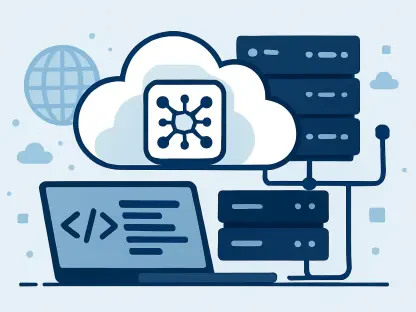In a world where data drives decisions on a global scale, the opportunity to contribute to meaningful change through analytics at a leading international organization like the United Nations Population Fund (UNFPA) is nothing short of inspiring. The Data Analytics Internship offers students and recent graduates in data science, statistics, and related fields a chance to make a tangible impact. This remote, full-time, 24-week program, hosted by UNFPA’s Office of Audit and Investigation Services (OAIS), places interns at the forefront of using data to enhance transparency and accountability within a key UN agency. It’s a role that combines technical expertise with a mission to support global development goals, such as ending preventable maternal deaths and eradicating gender-based violence. Far from being just another internship, this position provides a unique platform to apply cutting-edge skills in a real-world context, all while gaining exposure to the inner workings of an international entity dedicated to transformative change. The remote format further democratizes access, allowing talent from around the globe to participate without the burden of relocation.
Exploring UNFPA and Its Core Mission
Driving Global Change Through Reproductive Health
UNFPA stands as the United Nations’ primary agency focused on reproductive health and rights, championing a vision where every pregnancy is wanted, every childbirth is safe, and every young person’s potential is unlocked. Guided by a strategic plan that spans from the current year to future milestones, the agency targets critical issues like maternal mortality, unmet family planning needs, and gender-based violence. These efforts align seamlessly with broader frameworks such as the Sustainable Development Goals (SDGs), positioning UNFPA as a pivotal player in global progress. Interns stepping into this environment will find themselves contributing to initiatives that rely heavily on data-driven insights to shape policies and interventions. This connection between data analytics and real-world outcomes underscores the significance of the internship, as every dataset analyzed could inform strategies that impact millions of lives across diverse regions and communities.
The work at UNFPA is not just about numbers but about translating complex data into actionable solutions for some of humanity’s most pressing challenges. Interns will gain a firsthand understanding of how data supports evidence-based decision-making in areas like health service delivery and gender equality programs. This internship offers a rare glimpse into the operational backbone of a UN agency, where analytical outputs directly influence strategic priorities. Beyond technical contributions, the role provides exposure to the ethical dimensions of working in global development, ensuring that data practices uphold the agency’s commitment to fairness and equity. For those eager to merge technical skills with a purpose-driven career, this opportunity serves as an ideal entry point, blending rigorous analysis with a deep sense of social responsibility that resonates on an international scale.
Safeguarding Integrity with OAIS
Within UNFPA, the Office of Audit and Investigation Services (OAIS) plays an indispensable role as an independent body tasked with enhancing accountability and operational efficiency. Reporting directly to the Executive Director, OAIS focuses on risk management, internal controls, and oversight through audits and investigations. This unit ensures that UNFPA’s global operations adhere to the highest standards of transparency, a mission that becomes increasingly vital in an era of complex international challenges. The internship is embedded within this office, offering participants a chance to support these critical functions by integrating advanced data analytics into traditional oversight processes. This alignment with OAIS highlights the internship’s focus on innovation, as data becomes a cornerstone for identifying risks and improving governance across the agency’s worldwide initiatives.
The significance of OAIS extends beyond internal processes, as its work underpins the trust and credibility that UNFPA maintains with stakeholders globally. Interns will engage with projects that directly contribute to strengthening this trust, using data to uncover patterns, detect anomalies, and recommend improvements in operational workflows. This role offers a unique perspective on how data analytics can transform governance within a major international organization, providing practical experience in applying technical tools to high-stakes environments. Moreover, working under the guidance of seasoned professionals in OAIS allows interns to understand the intricacies of balancing innovation with ethical oversight, ensuring that technological advancements serve the agency’s overarching goals. This blend of technical and strategic exposure makes the internship a standout opportunity for aspiring data professionals.
Diving into the Internship’s Structure and Expectations
Key Features and Thematic Focus
The Data Analytics Internship at UNFPA’s OAIS is structured as a full-time, remote position spanning 24 weeks, designed to immerse participants in the intersection of technology and global governance. This format not only accommodates talent from diverse geographic locations but also reflects the growing trend of virtual collaboration in professional settings. A central theme of the internship is the application of data analytics to enhance oversight mechanisms, supporting UNFPA’s mission through innovative, evidence-based approaches. Interns will work closely with experienced mentors, including the Director of OAIS and data specialists, to tackle projects that modernize audit and investigation practices. This setup ensures that participants are not just observers but active contributors to meaningful advancements within a leading UN agency, gaining skills that are highly relevant in today’s data-driven landscape.
Another critical aspect of this internship is its emphasis on professional development within an international, multicultural context. Participants will engage with complex challenges that require both technical acumen and a nuanced understanding of global development priorities. The remote nature of the role further hones skills in virtual teamwork, communication, and adaptability—competencies that are increasingly valued across industries. By focusing on real-world applications of data science, the internship bridges the gap between academic knowledge and practical implementation, offering a robust platform for growth. This opportunity stands out as a chance to contribute to digital transformation initiatives that have a direct bearing on transparency and accountability, reinforcing the intern’s role as a key player in UNFPA’s broader objectives.
Technical Tasks and Cutting-Edge Innovation
At the heart of the internship are the technical responsibilities that challenge interns to apply their skills in data science to real-world oversight tasks. Key duties include collaborating with audit teams to define data requirements, extracting information from systems like Oracle ERP, and designing data pipelines through ETL (Extract, Transform, Load) processes. Additionally, interns will develop scripts for automated data analysis, create interactive visualizations using tools like Microsoft Power BI, and conduct exploratory analysis with statistical methods. A particularly exciting component involves researching machine learning models for anomaly detection and supporting the integration of Large Language Model (LLM)-based tools into oversight activities. These tasks highlight the role’s innovative edge, positioning interns at the forefront of technological advancements in global governance.
Beyond these core activities, the internship emphasizes the importance of adapting technical solutions to the unique needs of international development work. Participants will gain hands-on experience in tailoring data analytics to address specific risks and inefficiencies within UNFPA’s operations, ensuring that their contributions have a lasting impact. This role also offers exposure to emerging technologies like artificial intelligence (AI), providing a competitive edge in a rapidly evolving field. The focus on practical application means that interns will see how their work directly influences decision-making processes, from identifying operational gaps to informing strategic recommendations. For those passionate about leveraging technology for societal good, this internship presents a rare chance to blend technical expertise with a mission-driven purpose, creating solutions that resonate on a global scale.
Eligibility and Benefits for Aspiring Interns
Qualifications and Skill Requirements
To qualify for the Data Analytics Internship at UNFPA, candidates must meet stringent educational and technical criteria that reflect the role’s demanding nature. Applicants should be enrolled in a postgraduate program in fields like data science, computer engineering, or statistics, or be in the final year of a relevant undergraduate degree. Recent graduates who can start within 12 months of completing their studies are also eligible. Essential skills include a strong grasp of data models, ETL processes, and database development, alongside advanced proficiency in Python for data engineering. Familiarity with business intelligence tools like Power BI and an understanding of statistical concepts such as regression analysis are highly valued, while knowledge of AI and LLMs offers a distinct advantage. These requirements ensure that interns are well-prepared to tackle the complex challenges inherent in the position.
Beyond the technical qualifications, the selection process prioritizes candidates who can demonstrate a commitment to learning and adaptability in a fast-paced environment. The ability to handle large datasets and derive meaningful insights is critical, as is a foundational understanding of how data analytics can enhance governance and oversight. This internship targets individuals who are not only skilled in their craft but also eager to apply their expertise in a context that demands precision and accountability. Successful candidates will find that meeting these criteria opens the door to a transformative experience, where their technical contributions directly support UNFPA’s global mission. The emphasis on a robust skill set reflects the agency’s dedication to fostering talent capable of driving innovation within international development frameworks.
Essential Competencies for Success
Technical expertise alone is not enough to thrive in this internship; UNFPA also seeks candidates with a range of interpersonal and professional competencies. Integrity and ethical judgment are paramount, given the sensitive nature of audit and investigation work within a UN agency. Cultural sensitivity and effective communication skills are equally important, as interns will collaborate with diverse teams across virtual platforms. The ability to manage multiple tasks under tight deadlines ensures that participants can keep pace with the dynamic demands of the role. Fluency in English is mandatory, while proficiency in other UN languages like French or Spanish is considered a valuable asset. These competencies collectively enable interns to navigate the complexities of an international, multicultural workplace with confidence and professionalism.
The focus on soft skills underscores the internship’s holistic approach to professional development, preparing participants for future roles in global settings. Analytical thinking, for instance, is critical for interpreting data in ways that inform strategic decisions, while adaptability allows interns to respond to evolving project needs. These traits complement the technical demands of the role, creating a balanced profile for success within UNFPA’s framework. Candidates who excel in these areas will not only contribute effectively to OAIS initiatives but also build a foundation for long-term career growth in international development. This blend of personal and professional qualities ensures that interns can make a meaningful impact while gaining insights into the operational and cultural nuances of a leading global organization.
Professional Growth and Learning Outcomes
One of the standout benefits of this internship is the depth of learning it offers over the 24-week duration. Participants will develop a comprehensive understanding of internal oversight functions within a UN agency, learning how data analytics can address real-world challenges in audit and investigation processes. Exposure to global development and humanitarian operations provides a broader perspective on how data influences policy and practice on an international scale. The remote environment further enhances skills in virtual collaboration, a critical competency in today’s interconnected workforce. These learning outcomes position the internship as a stepping stone for careers in data science and governance, offering a unique blend of technical and contextual growth that is hard to replicate in other settings.
Additionally, the internship facilitates professional networking within a prestigious international organization, connecting interns with experts and peers who share a passion for data-driven change. This environment fosters the exchange of ideas and best practices, enriching the learning experience beyond the scope of individual projects. Participants will gain insights into the strategic priorities of UNFPA, understanding how their contributions fit into the agency’s larger mission. The skills acquired—ranging from advanced data analysis to cross-cultural communication—equip interns for future roles in both public and private sectors. For those aiming to make a mark in global development, this opportunity provides invaluable experience and visibility within a field that increasingly relies on data to drive progress and accountability.
Practical Realities and Financial Considerations
While the professional benefits of the internship are substantial, candidates must also navigate certain practical challenges associated with the role. Notably, the position is unpaid, though a modest stipend may be available for those without external financial support from universities or other institutions. The stipend varies based on the intern’s location, and UNFPA does not cover additional costs such as medical insurance or living expenses. Interns are responsible for securing valid insurance for the entire duration of the program and must manage their own logistical needs. This structure reflects a common reality in international internships, where the emphasis lies on experiential value rather than monetary compensation, requiring participants to plan accordingly for financial self-sufficiency.
Despite these challenges, the remote format of the internship alleviates some logistical burdens, such as the need for relocation or travel expenses. This accessibility allows a wider pool of candidates to engage with UNFPA’s mission without the constraints of geographic barriers. However, the expectation of independence in managing personal costs highlights the importance of preparation and resourcefulness for prospective interns. Candidates should weigh these practical considerations against the significant career advantages offered by the role, recognizing that the skills and exposure gained can pave the way for future opportunities. For many, the chance to contribute to global development through data analytics outweighs the financial hurdles, making this internship a worthwhile investment in a purpose-driven career.
Reflecting on a Path to Global Impact
Looking back, the Data Analytics Internship at UNFPA’s OAIS proved to be a transformative journey for those who embraced its challenges and opportunities. It offered a rare window into the mechanics of international oversight, where data became a powerful tool for enhancing accountability and driving change. Participants walked away with not only sharpened technical skills but also a profound appreciation for the role of data in shaping global development outcomes. For future aspirants, the next steps involve thorough preparation—refining technical expertise, securing financial plans, and crafting compelling applications by the deadline of August 31 at 11:59 PM (EST). Engaging with this opportunity means joining a legacy of innovation at UNFPA, with the potential to influence policies and practices that resonate worldwide. As the field of data analytics continues to evolve, such experiences stand as critical milestones for building a career that bridges technology with tangible, global good.









